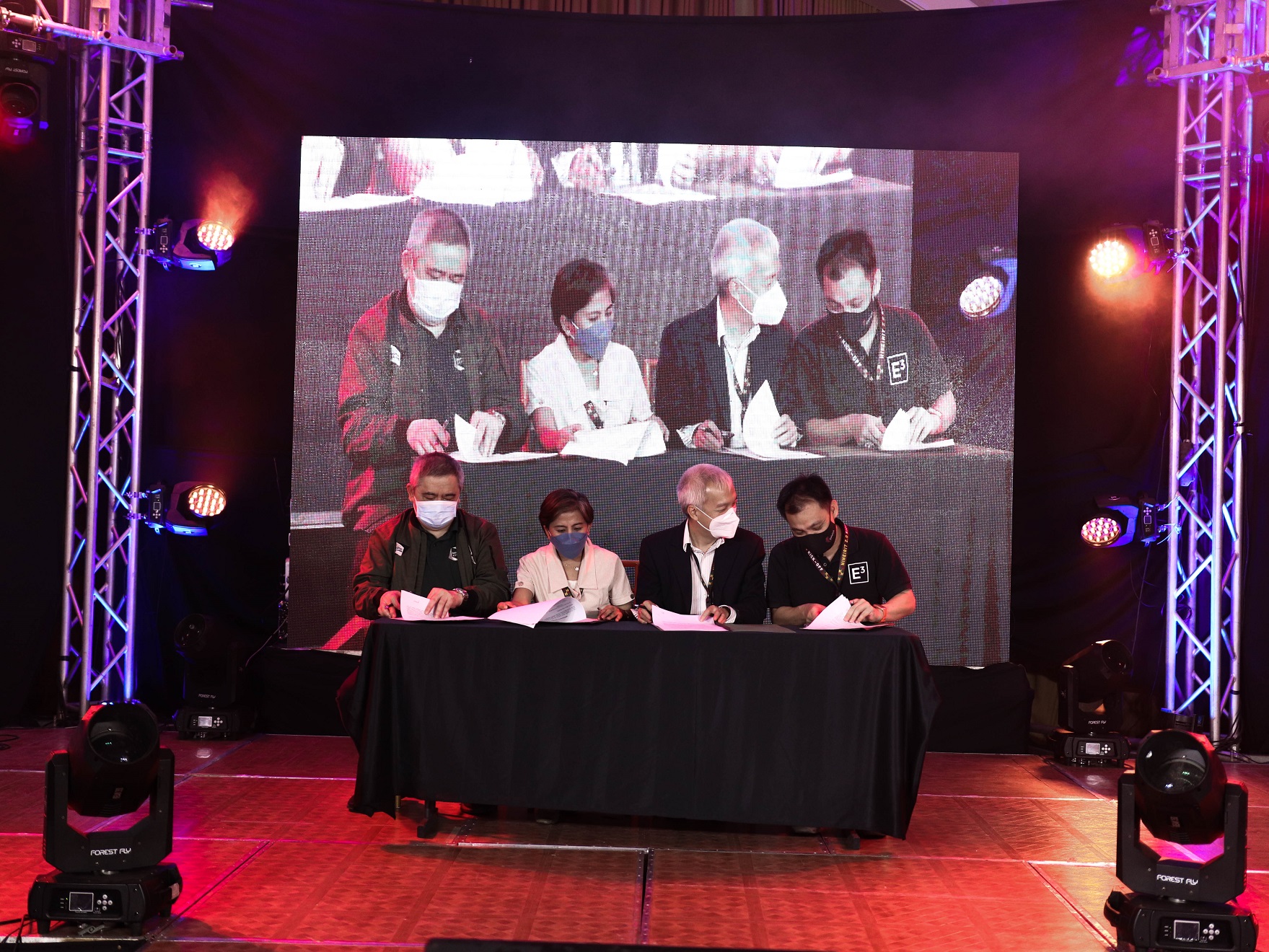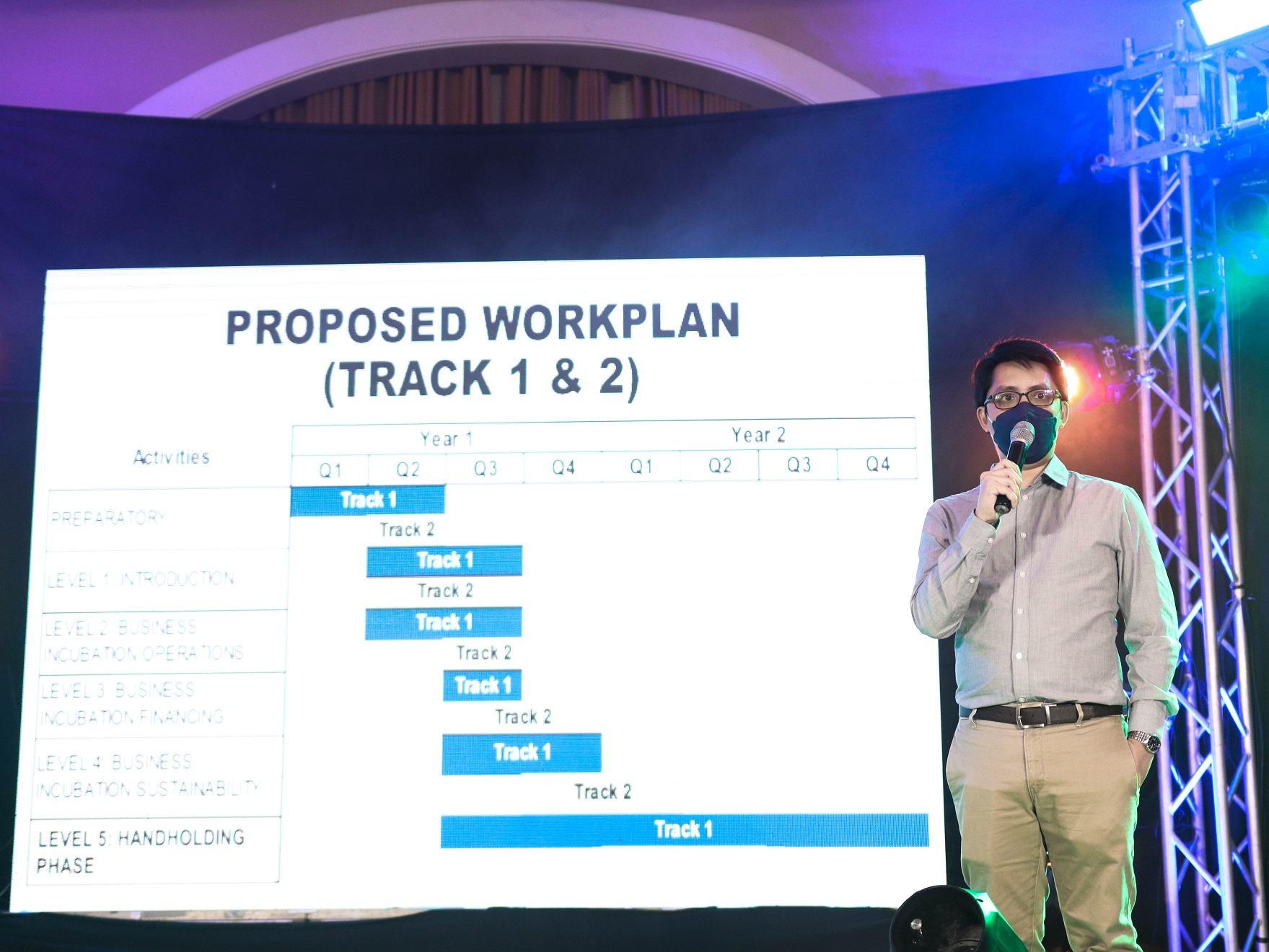UPMin, DOST kick off second batch of TBI
 |
 |
UP Mindanao Chancellor Lyre Anni Murao officially opened the Kick-off. “We are forging an agreement to transform our region’s innovation landscape. We are building a promising future for the next generations, a future where innovation flourishes and is supporting local economies…Let us fashion a new breed of resilient entrepreneurs who will champion Filipinnovation,” she said in her message. Ms. Russell Pili, chief of the DOST's Research Information and Technology Transfer Division (RITTD), individually called the HEIs from northern to the southern Philippines, many of which were represented by their heads.
A highlight of the Kick-off was the signing of a memorandum of understanding (in photo, left) to deliver the capability-building training for the proposed TBIs. Prof. Nestor Nisperos of De La Salle University's Animo Labs, Chancellor Lyre Murao representing UP Min's UPGRADE, Dr. Luis Sison of the University of the Philippines' UPSCALE, and Andrew Wong, founder of E3 Hubs (Malaysia), signed the memorandum for the training series that began the following day.
The second TBI effort is named "Handholding Starting Incubators from HEIs for Readiness towards Innovation and Technopreneurship - Preparatory and Skills Acceleration for TBI Managers Optimizing Regional Startup Ecosystem" or HIHEIRIT PA MORE. This aims to create more technology-based businesses or startups in the HEI's communities. It continues the original "Higher Education Institution Readiness for Innovation and Technopreneurship," or HEIRIT program, which was started in the Davao Region by the University of Mindanao, the University of Southeastern Philippines, and UP Mindanao, each of which now has their TBIs and startups, some of which had booths in the exhibit hall. The program is funded by the DOST's Philippine Council for Industry, Energy, and Emerging Technology Research & Development (PCIEERD).
Asst. Prof. Miguel Guillermo (in photo, right), UPGRADE's project lead, said, "The technology business incubator in the universities will be the focal point in building the next generation of entrepreneurs in the regions. If someone with a good idea that solves a problem in the community needs to get some assistance and support for their funding and ideas, they should approach the nearest technology business incubator that is located in a higher education institution."
